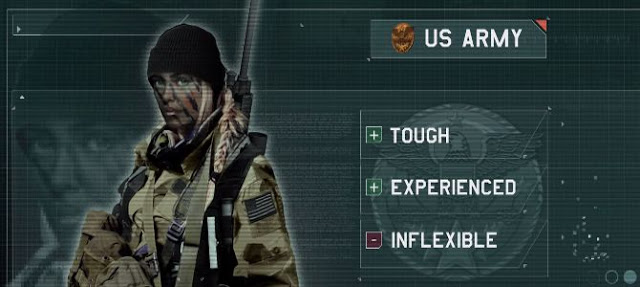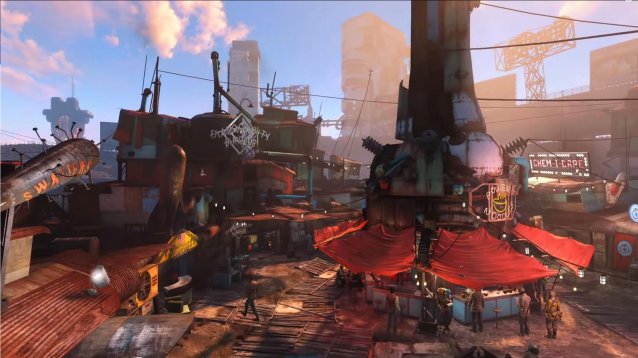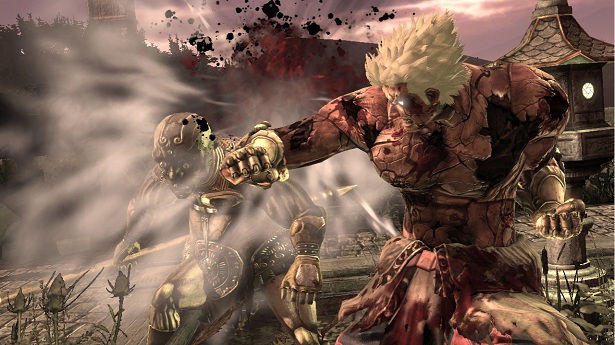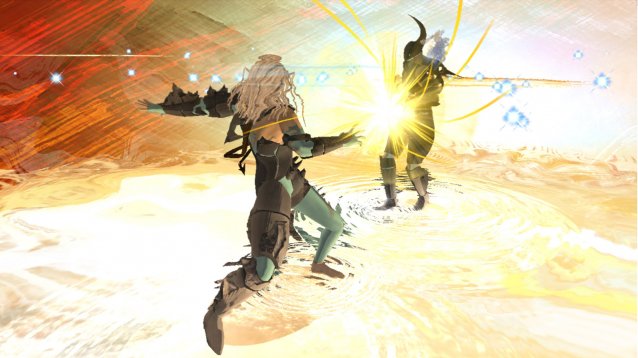

Game Rant’s Rob Keyes reviews The Witcher 2 (Xbox 360).
Polish developer CD Projekt Red made a name for themselves in 2007 after releasing The Witcher to mostly positive critical acclaim. Like the Mass Effect series, The Witcher valued player choice and wrapped it in a rich world with an engaging story.
Geralt of Rivia, the titular Witcher, returned for The Witcher 2: Assassins of Kings last year on PC, and unlike its predecessor, CD Projekt Red has successfully developed the game for a console debut on the Xbox 360. Does the sequel and its re-release hold up on its new platform and does The Witcher 2 offer a legitimate competitor to established console RPGs? Read on for our review.
The Witcher 2 is a lengthy single-player game that pits players in the shoes of Geralt for the majority of the story – and several of the supporting cast members for brief but key story moments. Due to the protagonist’s amnesia and the nonlinear style of storytelling, players learn the story and characters of The Witcher 2 as the plot unfolds – a plot mind you, which depends partially on player choice. The game is setup as a three-act saga with a lengthy tutorial chapter and an epilogue serving as bookends.
Geralt’s journey is that of discovering himself through regaining his memory and his path frequently relies on the player having to choose which side to fight for, while at the same time seeking to clear Geralt’s name and unravel the mystery behind the assassinations of kings during a time where war is brewing on several fronts. Think Game of Thrones but on a smaller scale, with more sorcery and and an abundance of fantastical creatures.
Geralt is one of the last remaining Witchers, a mutant with special abilities who makes a living as a monster hunter. He’s a master swordsman, an alchemist and he has several special abilities called “Signs” that allow the player to do things including emitting a defensive buff, launching fire at enemies and laying traps on the ground. He can even attempt to persuade certain NPCs to change their tune, a la Jedi mind trick. Although that’s not an ability the player has control over.
The Witcher 2 includes the standard fare of RPG game mechanics, including looting, foraging, crafting and alchemy. Alchemy and the use of potions can only be done outside of combat when Geralt meditates – although this idea and how it affects the day/night cycle isn’t really played out or explored much in the game.
Crafting is more interesting as it involves the collection of schematics and materials – not unlike alchemy. The player then must pay a smith to construct the desired item. The better items have slots for enhancements where the player can customize their weapons, of which Geralt may equip two – one for fighting humans, one (made of silver) for everything else. The same goes for certain armors and the variety of items allows players to customize Geralt quite a bit, both from an appearance standpoint but from a playstyle perspective as well.
Unlike Skyrim, The Witcher 2 is a linear experience in the sense that it does not offer an open world to explore. Its story and character interactions however, depend on player choice through conversations and this is where the game shines. That said, there’s a lack of freedom in the environments – which, due to the linear design, poses a problem. In many cases there’s only one way to go on a given quest, but the map often indicates otherwise. Enter the ever-annoying invisible walls and non-traversable obstacles, ranging from stones and bushes to ledges (all the exact same height) which require context-sensitive animations. Sometimes these won’t work if standing too close or too far and when combined with Geralt’s inability to swim or step-up, the game’s beautiful set pieces and environments begin to feel like cages.
As mentioned, for a linear game, it’s not always clear where the player needs to be headed. Sometimes it’s the physical obstacles in the way, made problematic by a not-very-useful map and lack of a fast travel system, other times it’s because the journal does not clarify where Geralt must go for the quest or that follow-up parts of the quest will happen in later chapters/other areas.
The game’s side-quests often tie into the overarching story and return as conversation topics later. These varied moments are the better parts of the game, but there are mini-games and quest phases that involve things like sneaking which is broken at times – when the NPCs do not react to Geralt walking in circles or bumping into them. These hiccups take away from the good parts of the game and even the friendly NPCs get in the way by walking through Geralt or other characters during conversation. They can at least entertain when running on the spot or into walls in the background. Needless to say, The Witcher 2 could use a little more polish in its player/NPC movement, and AI, though these frequent bugs are not game-breaking.
What will hold players back are the game’s combat and boss battles, not because they’re problematic, but because of how challenging The Witcher 2 can be. Geralt is not a tank, and taking frequent hits, even against the seemingly least intimidating of foes, will result in death and the all-too-familiar “Game Over” screen. Mastering Geralt’s dodge-roll is absolutely critical and leveling up the right defensive skills and timing the use of Signs and traps can mean all the difference. Running away is sometimes the best strategy, especially when unable to activate potions because of the required “meditation.”
The enemy AI is easily confused so the player can take Geralt and run him a few dozen feet away and employ hit-and-run tactics with Signs, daggers and traps. Boss fights on the other hand, can be totally unforgiving until the player learns through repetition the precise strategy for taking each down. Doing so is incredibly gratifying and the in-game rewards (including wearable trophies) make up for the required efforts.
A very cool and unique feature employed by CD Projekt Red is the ability to learn about monsters, their nests and weaknesses, through the reading of books – or through experience by battling them. It’s a genius system that helps create the sensation that Geralt (the player) is a legitimate monster hunter and that there’s lore and tactics behind encounters rather than simple hack and slash combat.
That said, save often as The Witcher 2’s autosave feature isn’t always reliable, and if Geralt feels the fatal sting of one of the game’s many monster types, players will need to load up their last save file. I learned this the hard way and it can be extremely frustrating to have to replay tough areas or re-traverse a long distance and relive conversations because of it. And this does happen often.
The design and characterization of Geralt, his love interest, along with the series’ take on Dwarves, Elves, kingdoms of old, wilderness and monsters are beautifully realized. The core characters are given great dialogue and moments throughout the game, and players will be left wanting more after making a few tough decisions that affect them all.
Outside of slow menus and frequent texture pop-in, The Witcher 2 makes an adequate transition from PC to the Xbox 360, offering a rich world with brilliant story-telling, not seen in other fantasy RPGs. It however requires an investment of time and dedication to push through its first act – and for players to get over the steep learning curve. The Witcher 2 is not the most accessible of games for casual players but that works to its charm as a deeper, more complex experience. Its gameplay and interface however, do not quite match up to its story-telling but that does not prevent it from being a must-play title for RPG enthusiasts – as The Witcher franchise is rightfully here to stay. Just remember that this game isn’t for kids.
The Witcher 2: Assassins of Kings Enhanced Edition is available on Xbox 360 and PC. Game Rant played the Xbox 360 version for this review.
–
Follow me on Twitter @rob_keyes.




 Fallout 4: How to Get Unlimited Caps, Weapons, Ammo, and Armor from Any Vendor
Fallout 4: How to Get Unlimited Caps, Weapons, Ammo, and Armor from Any Vendor Asura’s Wrath Walkthrough
Asura’s Wrath Walkthrough El Shaddai and the Importance of Choice
El Shaddai and the Importance of Choice Sherlock Holmes Museum Escape Walkthrough
Sherlock Holmes Museum Escape Walkthrough 3 Money-Saving Price Comparison Extensions To Install Now
3 Money-Saving Price Comparison Extensions To Install Now